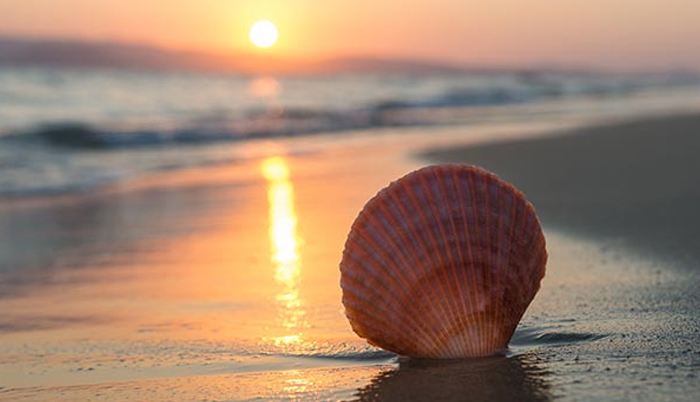![]() Home > Lifestyle
Home > Lifestyle
Marine Metal Pollution Weakens Scallops, Affecting Their Growth And Survival

![]() November 30th, 2020 | 15:01 PM |
November 30th, 2020 | 15:01 PM | ![]() 2440 views
2440 views
NATURALNEWS
Heavy metals contaminating seabeds are causing king scallops to develop more brittle shells and increasing their risk of predation. This is according to a new study led by researchers from the University of York in the United Kingdom.
Published in the journal Science of the Total Environment, it showed that king scallops collected in the coastal waters around the Isle of Man had weaker and more damaged shells, as well as more disrupted shell structures, compared to king scallops from elsewhere.
Sampling done during the 1970s and 1990s showed that waters off the eastern coast of the Isle of Man were contaminated with copper, lead and zinc due to the activities of major mining sites in the late 1800s. However, the last major mine on the Isle of Man closed in 1908. This suggests that metal pollution from mining has a long-term impact on marine organisms.
Metal pollution threatens scallops
Earlier studies on the impact of metal pollution on scallops and other bivalves have produced varying results, highlighting the need for further studies. To this end, the researchers analyzed the mineralogical composition, strength and thickness of the shells of king scallops from the waters around the Isle of Man over a 13-year period.
They found that scallops collected from Laxey, a village on the east coast, had significantly thinner shells than scallops from other areas. The internal structure of the Laxey shells also contained a disruption, or a fault line.
Interestingly, the shells themselves did not contain traces of heavy metals. The researchers said it could be the case that metals contaminating the seabed are either affecting the structure of the shells or disrupting the scallops’ shell-growing process.
No matter the case, weaker shells leave scallops with a lower chance of survival since crabs, lobsters and other natural predators could crush them more easily.
However, it isn’t clear how metal pollution in the ocean is eroding scallops’ shells and causing others to grow weaker ones. One hypothesis is that the metals replace calcium during the shell-growing process. The metals could also be modifying the activity of proteins during that process, thus disrupting shell growth.
The fact that low levels of metal contaminations appear to affect the structure and strength of king scallop shells to such a great degree poses a challenge to marine species management and conservation strategies, noted lead researcher Bryce Stewart.
If left unchecked, heavy metal pollution could threaten other bivalves considered essential for maintaining ocean ecosystems, such as oysters, mussels and clams.
Overall, their findings show that metal contamination plays an important role in the development of thinner and weaker scallop shells. Therefore, the current consensus on acceptable levels of metal pollution should be revised.
Metals at sea
Unlike plastics, much less is known about the threat heavy metals pose to ocean health and marine organisms. But thanks to recent studies and emerging research, scientists are beginning to realize the far-reaching impact of heavy metals on the world’s oceans and their inhabitants.
For instance, a recent study led by researchers from Cornell University in New York found that high levels of copper from agricultural runoff and marine paint leaching from boat hulls were poisoning coral reefs around Puerto Rico.
In particular, high copper concentrations in the water stressed corals and sea fans, thus affecting their immune response to multifocal purple spots disease, which contributes to the decline of coral reefs worldwide.
Meanwhile, researchers from Simon Fraser University in British Columbia, Canada found that lead, copper, zinc and cadmium sloughed off of plastics found on Canada’s beaches. Leah Bendell, who co-wrote the study, said that the metals, which can be acutely toxic, could then enter marine food webs and threaten ecosystems.
Source:
courtesy of NATURALNEWS
by Divina Ramirez
If you have any stories or news that you would like to share with the global online community, please feel free to share it with us by contacting us directly at [email protected]